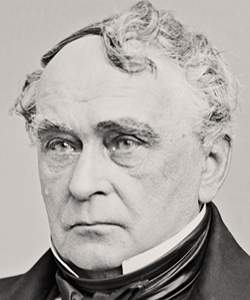Francis Lieber (American National Bibliography)
Scholarship
Sensing the pending breakup of the Union and tired of suppressing his sympathies for the nation and against slavery, Lieber left South Carolina in 1856 and moved to New York. He accepted Columbia College's offer of a chair as well as the honor of titling it. By his own design he became professor of history and political science, thereby becoming the first officially named political scientist in America. He made clear in his inaugural address that he took his field to be "the very science for nascent citizens of a republic." During the Civil War he advised the U.S. government in legal matters and organized the voluminous output of the Loyal Publication Society. He also wrote an important pamphlet on Guerilla Parties Considered with Reference to the Laws and Usages of War (1862) as well as A Code for the Government of Armies in the Field, as Authorized by the Laws and Usages of War on Land (1863). Solicited by General Henry Halleck, Lieber's code was turned into a set of instructions issued by President Abraham Lincoln as General Orders No. 100. These instructions were later influential on the accords that emerged from The Hague Conference of 1899 and 1907.
James Farr, "Lieber, Francis," American National Biography Online, February 2000, http://www.anb.org/articles/14/14-00365.html.



